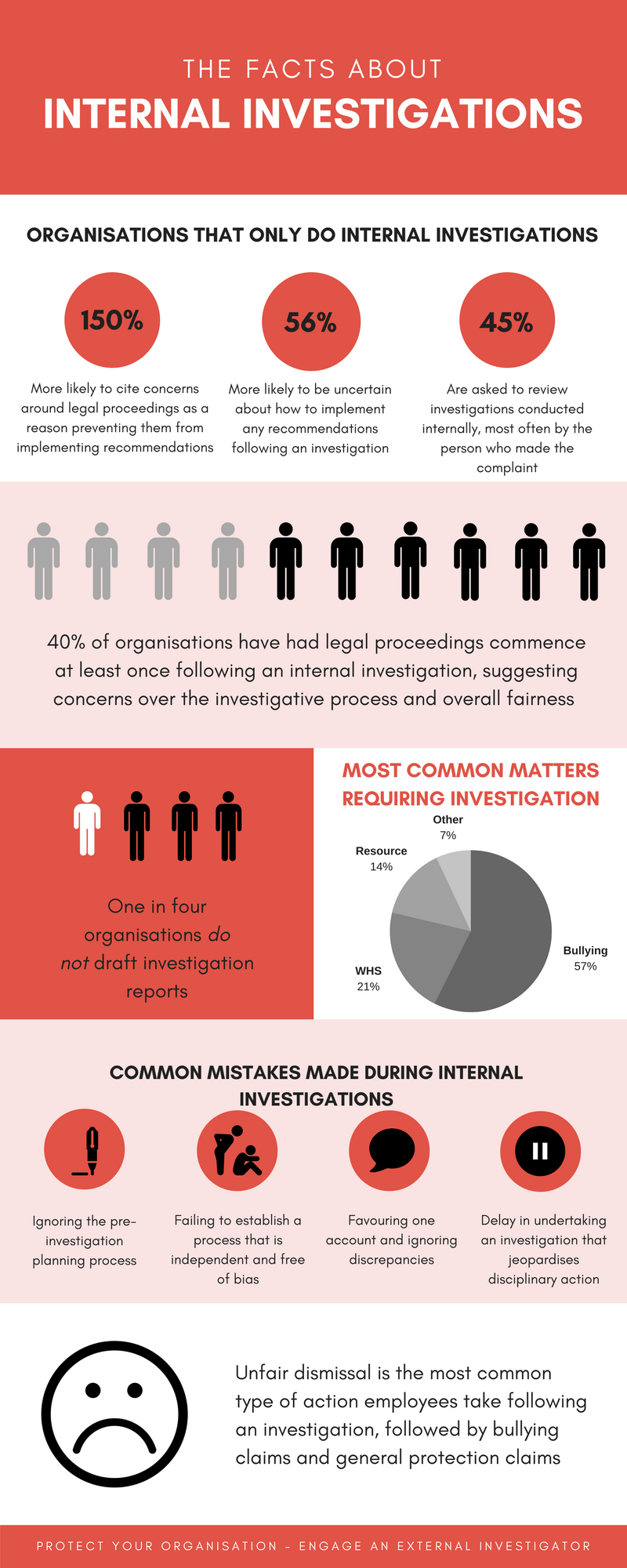A well-conducted investigation can reduce workplace conflict, promote job satisfaction and inclusion, and can also help shield you from legal liability. However, the converse is also true — a botched investigation can have enormous implications, both from a business and legal perspective.
At The Huxley Hill Group, we are extremely passionate about ensuring organisations are conducting top quality investigations so that the best outcome is achieved for all parties. That’s why with every investigation we conduct, we’re not just trying to discover what happened and who was involved, but also how it happened and what can be done to prevent it happening again. This means your business has the information it needs to implement changes that promote a safe and healthy workplace for all staff members.

